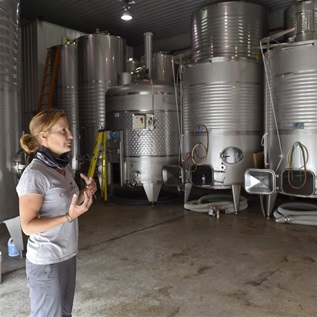Ambitious Retirement Savings Proposal Released By Heritage Foundation And The Retirement Security Project
A new plan for Automatic IRAs that would provide a relatively simple, cost-effective way to increase retirement security for the estimated 71 million workers without pension plan coverage was proposed today by The Heritage Foundation and The Retirement Security Project. AARP has joined forces with Heritage and RSP to lend its support.
With the looming retirement security crisis facing our country, policy-makers from both parties are focused on ways to strengthen pensions and increase savings. While reforms currently being considered would improve employer-sponsored plans, the Automatic IRA provides another way for employees of smaller businesses to choose to save for retirement. Over time, this would lead to more plans, encouraging small employers to retain and attract valuable employees by graduating to sponsorship of an actual retirement plan.
According to the proposal's co-authors Mark Iwry, Senior Adviser to The Retirement Security Project and Non-Resident Senior Fellow at the Brookings Institution, and David John, Senior Research Fellow in Retirement Issues and Financial Institutions at The Heritage Foundation, the plan works for both employers and employees: “Under our approach, those firms that aren't ready to sponsor a plan would be called upon at least to let their employees save in IRAs using the same powerful payroll deposit mechanism that drives 401(k)s. This provides an easy and effective way for individuals to take responsibility for their financial futures.”
Employers would inform employees of this savings option and would have the choice to either obtain from each employee a decision to participate or not, or automatically enroll employees (allowing the employee to opt out). Automatic enrollment has produced dramatic increases in 401(k) participation, especially among lower-income and minority employees.
Small employers would receive a temporary tax credit for giving their employees access to IRAs through payroll deposit --- much like the typical direct deposit of paychecks to an employee's bank account. Small businesses with no more than 10 employees and new start-ups would not be required to provide this access to payroll deduction, but would receive the tax credit if they did so.
Under the proposal, employers would not have to maintain a plan, make contributions, determine where or how contributions are invested, or open IRAs. Additionally, they would be protected from potential fiduciary liability.
“With our aging population and changing retirement landscape, too many Americans will come up short in retirement. Congress should act now to expand this successful payroll deduction mechanism so that tens of millions of workers can more easily and effectively save for retirement,” said David Certner, Director of Federal Affairs at AARP.
“The Automatic IRA helps that portion of the workforce not currently covered by employer-sponsored plans, many of whom are moderate and lower-income workers who have the greatest need to save,” said Peter Orszag, Director of RSP.
The Retirement Security Project is supported by The Pew Charitable Trusts in partnership with Georgetown University's Public Policy Institute and the Brookings Institution. RSP works on a nonpartisan basis to promote common sense solutions to improve the retirement income prospects of middle- and lower-income Americans. The Heritage Foundation is a research and educational institute whose mission is to formulate and promote conservative public policies. AARP is a nonprofit, nonpartisan membership organization for people age 50 and over.
About The Retirement Security Project
The Retirement Security Project is supported by The Pew Charitable Trusts in partnership with the Brookings Institution and Georgetown University's Public Policy Institute.
For more information, visit www.retirementsecurityproject.org.
Pew is no longer active in this line of work, but for more information visit the Retirement Security Project on PewHealth.org.






